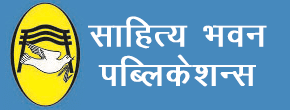Silent Features of The Book:
The book has been published strictly according to the Common Minimum Syllabus of B.Com. Semester I of Lucknow University,
Lucknow.
With the decay of communism and re-enthroning of the market economy, it has become even more important to understand the function of the market as a coordinating system. Joan Robinson described the economic theory as a ‘‘box of tools’’. For proper handling of our tools, we must learn how they function. This book fulfills these objectives. I have tried to present a clear and accurate picture of modern microeconomics. While doing this, relevant historical account has also been
added so that the principles of modern economics are understood in their proper perspective.
Though the book has been presented in the traditional format, the analysis covers all important recent developments.
Micro Economics Syllabus For B.Com I Semester of Lucknow University
- Course Outcome: After studying all materials and resources presented in the course, the student will be able to :
Explain the role of scarcity, specialization, opportunity cost, and cost/benefit analysis in
economic decision-making. - Identify the determinants of supply and demand; demonstrate the impact of shifts in both market supply and demand curves on equilibrium price and output.
- Summarize the law of diminishing marginal utility; describe the process of utility maximization.
- Calculate supply and demand elasticities, identify the determinants of price elasticity of
demand and supply, and demonstrate the relationship between elasticity and total revenue. - Describe the production function and the Law of Diminishing Marginal Productivity;
calculate and graph short-run and long-run costs of production. - Relate to real-world business scenarios through a study of various market forms.
- Study the factors affecting the distribution of income through an analysis of various factor
payments. - Gain in-depth insight and equip them to analyze the real economic situations more effectively with the help of practical problems using elementary mathematics.
Unit-I Definition and concepts of Economics: Wealth, Welfare, Scarcity and Growth Oriented definitions, Concept of Scarcity, Optimum Utilization Equilibrium and Various Forms of Equilibrium. Nature and Scope of Economics, Micro and Macro Economics. Inductive and deductive methods of Economics.
Unit-II Consumer Behaviour and Utility Analysis; Cardinal Approach: Law of Diminishing Marginal Utility, Law of Equi-Marginal Utility, Consumer’s equilibrium and Consumer’s Surplus. Demand Analysis: Types, Determinants, and change in demand, Law of Demand and its exception. The elasticity of Demand: its types and measurements. Ordinal Approach: Indifference curve Analysis, price, income, and substitution effects.
Unit-III Producer’s Behaviour: Production and Factors of Production. Law of Production: Law of Variable Proportions and Return to Scale. Isoquant: Meaning, Assumptions and Properties. Producer’s Equilibrium through Isoquants. Cost Curves Analysis: short-run and long-run costs. Law of Supply and its Elasticity. Market: Revenue Analysis, Concept, and Classification of Market. Equilibrium and Price Determination of Firm and industry under Perfect competition, Monopolistic
competition and Monopoly, Price discrimination in monopoly.
Unit-IV Distribution: Factor Pricing, Theory of Marginal Productivity. Rent: Ricardian Theory, Modern Theory, Quasi Rent, Wages: Subsistence Theory of Wages, Wage Fund Theory, Residual Claimant Theory, and Marginal Productivity Theory. Interest: Gross and Net Interest, Classical Theory of Interest, Loanable Funds Theory, Liquidity Preference Theory. Profit: Accounting and Economic Profit. Dynamic Theory of Profit: Risk-bearing Theory, Uncertainty Bearing Theory, and Innovation Theory.
Micro Economics Book Content
- Definition And Concepts Of Economics.
- Basic Problems Of An Economy And Working of Price Mechanism
- Equilibrium And Optimum Utilization, Various Forms Of Equilibrium
- Nature And Scope Of Economics
- Relation Of Economics With Other Subjects
- Micro And Macro Economics
- Methods Of Economic Analysis (Deductive And Inductive)
- Theory Of Demand
- Elasticity Of Demand
- Concept And Types Of Utility
- Theory Of Consumer Behaviour : Cardinal Approach (Law Of Diminishing Marginal Utility, Law Of Equi-Marginal Utility
- Consumer’S Surplus
- Theory Of Consumer Behaviour : The Indifference Curve Analysis
- Production And Factors Of Production
- Law Of Production (Production Function, Law Of Variable Proportions And Returns To Scale)
- Law Of Production : Isoquants And Producer’S Equilibrium
- Cost Analysis
- Market (Concept And Classification)
- Revenue Analysis
- Theory Of Supply
- Equilibrium Of Firm And Industry Under Perfect Competition
- Price-Output Determination Under Perfect Competition
- Monopoly Pricing & Price Discrimination
- The Theory of Imperfect Competition (Monopolistic Competition)
- Pricing Under Oligopoly and Theory of Games
- Theories Of Distribution
- Rent
- Wages
- Interest
- Profits

















Reviews
There are no reviews yet.